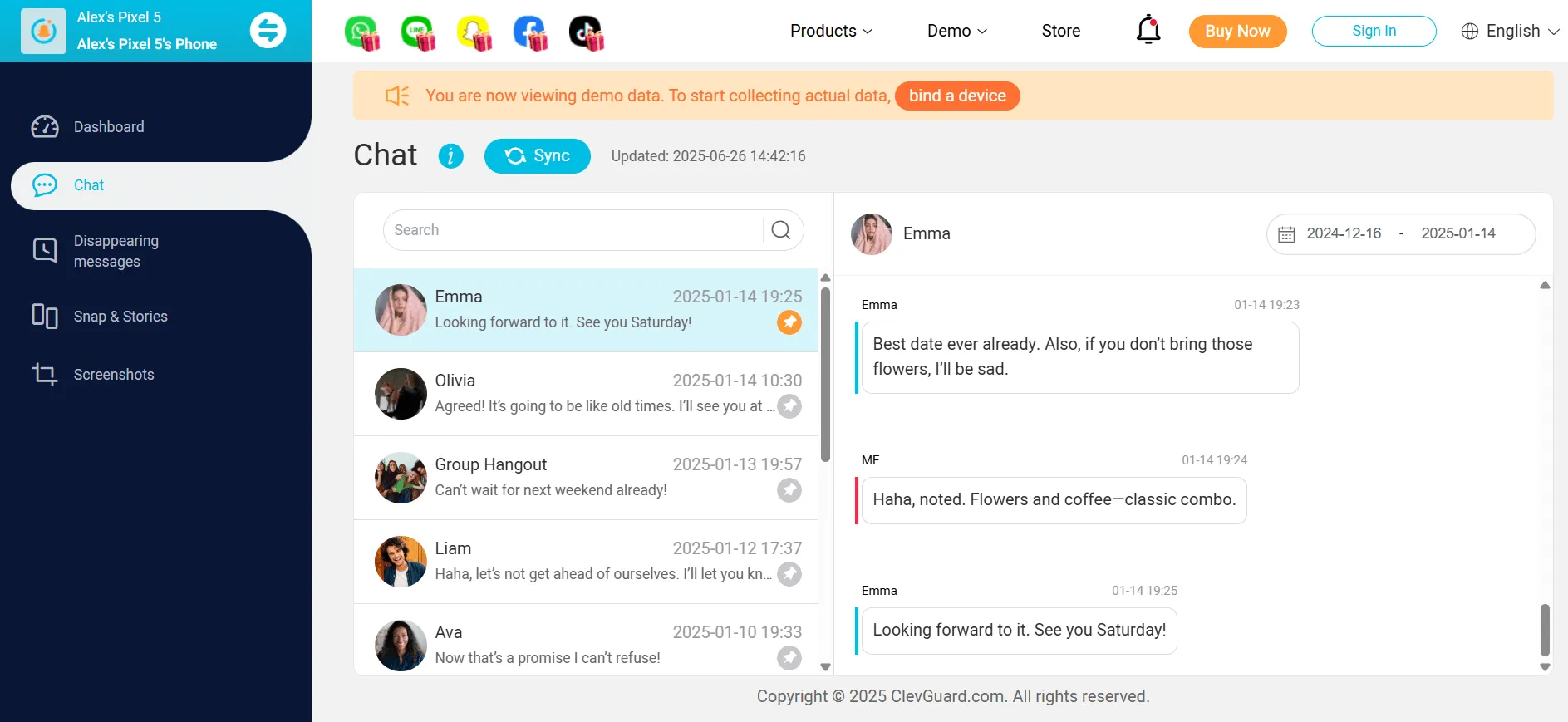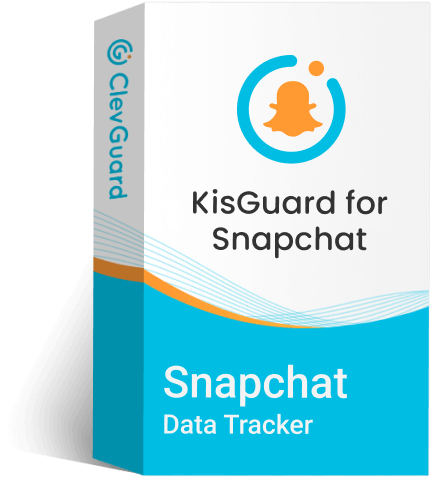ClevGuard Support: Monitor Devices with Others' Permission.

Snapchat is immensely popular among teens for its fun, image-focused interface and the unique feature of disappearing messages. However, this very function can be misused for sexting—sharing sexually explicit images or messages that vanish shortly after being viewed. For parents, this creates new challenges in safeguarding their children's digital activity. This article explores the risks of Snapchat sexting, how it happens, and—most importantlywhat you can do to prevent it.
Table of Contents
Part 1: What Is Snapchat Sexting?
Part 2: Why Is It Dangerous?
Part 3: Signs Your Child Might Be Sexting on Snapchat
Part 4: How to Talk to Your Child About Snapchat Sexting
Part 5: How to Prevent Snapchat Sexting (Tips for Parents)
Part 6: When Private Becomes Public: The Illusion of Disappearing Messages
What Is Snapchat Sexting?
Sexting refers to the act of sending or receiving sexually explicit messages or images, and Snapchat makes this easy with disappearing Snaps and chats. Teens often assume that since messages vanish, their digital actions leave no trace. However, the truth is more complicated.
Snaps can still be screenshot, recorded using another device, or saved via third-party apps—without the sender's knowledge. The illusion of privacy encourages risky behavior, especially among impulsive adolescents who may not fully grasp the consequences of sharing intimate content.
Why Is It Dangerous?
Snapchat sexting poses several serious risks:
- Loss of control over private content once it's shared.
- Cyberbullying, blackmail, and emotional trauma can follow if images are leaked.
- Real-life cases like Amanda Todd's highlight the irreversible consequences.
- Legal issues: In many jurisdictions, sexting between minors can result in criminal charges—even if it was consensual.
Snapchat itself warns users that there is no guarantee content will disappear. Some teens fall victim to malicious users who exploit the platform's ephemeral features to manipulate or coerce them into sending sensitive material.
For more ways to support your child online, check out these tips to stop cyberbullying.
Signs Your Child Might Be Sexting on Snapchat
Identifying potential warning signs early can help prevent harm. Be observant of the following:
- Secrecy around smartphone use, particularly at night.
- Sudden changes in mood, anxiety, or withdrawal.
- Use of sexually suggestive emojis or slang terms like "streaks" or "snaps."
- Frequent app deletions or refusals to share activity logs.
These behaviors may indicate more than just normal teenage privacy—they could suggest your child is navigating unsafe online interactions.
How to Talk to Your Child About Snapchat Sexting
Open and empathetic communication is critical. Start with curiosity, not confrontation.
- Stay calm and non-judgmental, especially if they admit to something concerning.
- Ask open-ended questions like, "What do your friends usually use Snapchat for?"
- Explain the real-world consequences of sexting, including emotional and legal risks.
- Encourage them to set boundaries and say "no" to peer pressure.
- Reinforce that your role is to protect, not punish.
Maintaining this ongoing dialogue can help your child make better decisions online.
How to Prevent Snapchat Sexting (Tips for Parents)
Being proactive with both conversation and technology is key:
Use a parental control solution like ClevGuard's parental control app, which allows parents to monitor apps, manage screen time, and receive alerts for inappropriate activity.
For more targeted monitoring, the Snapchat monitoring tool helps you track messages, detect harmful interactions, and view app usage discreetly.
Review friend lists and privacy settings together regularly.
Educate about digital footprints—explain how once something is shared online, it can be permanent.
Establish house rules about phone use, especially late at night.


KidsGuard for SnapChat
The Ultimate SnapChat Monitoring App for You.
When Private Becomes Public: The Illusion of Disappearing Messages
One of Snapchat's biggest risks is its disappearing content, which leads many users to feel falsely secure. But with today's technology, any content can be saved—and used in harmful ways.
Apps exist that can secretly store snaps, and screenshots can happen before the image disappears. Teens may trust the wrong people or feel pressured to share content they later regret. Help your child understand that temporary does not mean safe.
To understand how broader digital habits affect teens, you can also explore what being "chronically online" means.
Conclusion
Snapchat sexting is a modern parenting challenge, but it's not insurmountable. With education, active dialogue, and the right tools, you can help your child navigate the digital world safely. A balanced approach—one that respects their independence but reinforces healthy boundaries—is essential. Trust, communication, and proactive digital supervision go a long way in protecting them from unintended consequences.
FAQs
1. Can Snapchat sexting lead to legal trouble?
Yes. In many regions, even consensual sexting between minors can be considered illegal and prosecutable
2. Are there tools to monitor Snapchat activity?
Yes. ClevGuard's Snapchat monitoring tool offers discreet activity tracking and alerts for potential dangers.
3. Is Snapchat sexting always intentional?
Not always. Peer pressure and a misunderstanding of the app's risks can lead to unintentional sharing.
4. What should I do if I find out my child has been sexting?
Stay calm, talk with them, understand the context, and take action to protect them—legally and emotionally.



